ELF 2017: ‘Knowing where we come from, we will know where we go’
Lindsay Brown closed the European Leadership Forum in Poland challenging participants to recover the centrality of the gospel and strengthen the mission of carrying the message of Christ to the ends of the Earth.
WISLA (POLAND) · 30 MAY 2017 · 18:13 CET
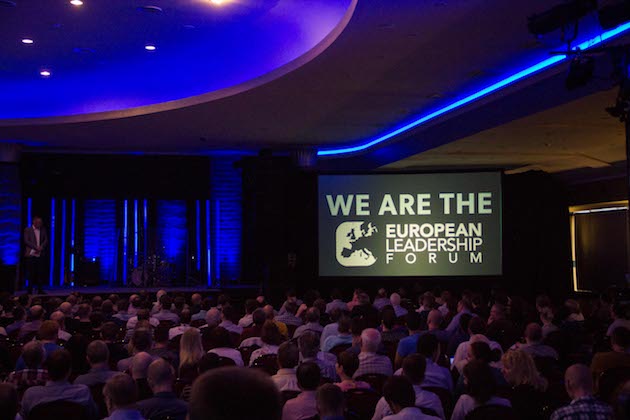
In the year of the 500th Anniversary of the Reformation, around 800 evangelicals from different parts of Europe gathered in Wisla (Poland) to share, celebrate together and be equipped in various ministerial and professional areas.
The European Leadership Forum - organised every year by the Forum of Christians Leaders, for fifteen years - featured the biblical expositions of British Mathematics Professor John Lennox.
The evening plenaries were led by theologians and pastors Lindsay Brown, Leonardo De Chirico, Michael Reeves and Hans Bayer.
PLENARIES, NETWORKS AND WORKSHOPS
While John Lennox gave a broad perspective on the book of Acts, the other speakers analysed specific aspects of the Reformation: its historical influence in Europe, the importance and validity of its principles for evangelicals in the world, and its missionary example for the church today.
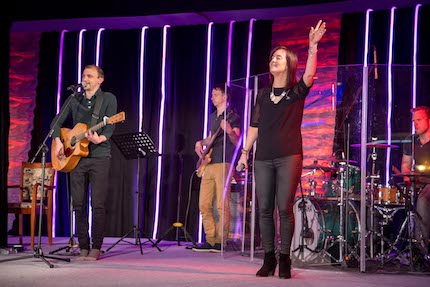
During the six days of gathering (20th-25th May), participants received training in specific aspects through specialised networks: groups of 10 to 50 people with similar areas of interest. These small groups worked on areas like preaching, theology, church planting, politics, leadership of organisations, media, counseling or arts.
The ELF provides an excellent opportunity to analyse current issues from a biblical perspective and with different geographical approaches. The afternoon workshops, addressed many of them, such as: answers to theological questions, evangelism among Muslims, responses to Gender Ideology, participation of Christians in politics, etc.
Participants not only met Christians from other countries, but were also able to contact with many ministries during the 'Expo', which took place on Monday afternoon. Evangelical Focus and Protestante Digital, alongside many other projects and organisations, had stands to inform about what they do.
ACTS: THE SPIRITUAL-MATERIAL CONNECTION
Each day started with the mathematician John Lennox, emeritus professor of Oxford University, teaching clear lessons from the book of Acts.
Lennox began by affirming the historicity of Luke's book, a meticulous physician whose work has enabled Christians to know the origin of the Church. His account shows both the advances of the gospel and the conflicts that the early Christians faced.
Lennox specially highlighted the structure of the book, with permanent references to the Old Testament. According to him, “fulfilment” is one of the important terms of the book, to affirm the church as something that not only happened but was prophesied. The plan of God is revealed and affirmed constantly, Lennox explained.
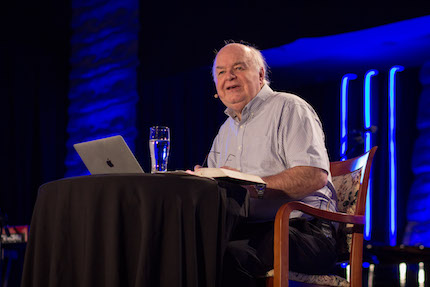
He also emphasised the historical and physical reality of the events reported in Acts. The resurrection of Christ, Pentecost, Paul's conversion or the miracle of the crippled in the temple are often spiritualised, which is a mistake because a missunderstood spirituality can suppress the gospel, Lennox said.
Lennox talked about the importance of considering the “religious” barriers that the gospel tore down by making rituals and the temple itself obsolete.
The temple ceased to be the place of worship, and as a Church, Christians have historically failed to reaffirm this biblical truth, so well described in the book of Acts, and then theologically explained in Hebrews.
In Acts, like today, the church also faces situations of relativism and pluralism, the speaker said. Then, Christianity had no doubts, Lennox said: Jesus is the way of salvation. The Church must insist on the essential difference between Christianity and other religions or philosophies, he emphasised.
Lennox concluded by approaching the various conflicts that the church began to face upon arriving in Europe. But in every conflict (pagan spirituality, accusations of political subversion, philosophy and idolatry, or traditionalism and religiosity), God's direction is perceived.
This is why there is a need for the Church, now, to be led by the Holy Spirit and to use common sense, recognising that God is not a distant God, but a God who wants to save us and cares for each person.
REFORMATION: ITS FOUNDATIONS AND VALIDITY
If the gospel was explained in the mornings, the afternoons plenaries reviewed the biblical-theological foundations of the Reformation.
Italian pastor Leonardo De Chirico spoke about the historical relationship between Protestantism and the Roman Catholic Church.
Chirico denounced the initiatives that underestimate the differences that already exist among Catholics and evangelical Christians, which, according to the theologian, remain "non-negotiable", including justification by faith alone, the authority of the Scriptures and the universal priesthood of believers.
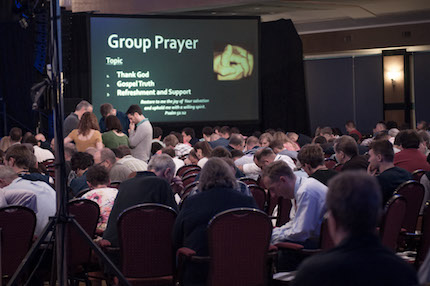
German theologian Hans Bayer continued on Monday speaking about the principle of Sola Scriptura. Bayer explained that human existence has been marked by the Fall and only the direct intervention of God can restore what has been broken.
Humans achieve reconciliation by the initiative of God, and we reach it because God reveals Himself, he said. That does not mean that the revealed Word seeks to be praised itself, but it rather points to the source of salvation: God.
Having the conviction that the Scripture is the truth and the authority, will make us better servants of God, Bayer concluded.
English theologian Michael Reeves talked with great passion about justification by faith, the truth that changed the life of Luther.
Justification is a verdict: the sinner is declared righteous before God by faith in Christ, explained Reeves, who went through Romans 1 to 5 explaining how Luther or Calvin strongly affirmed this idea.
Reeves differentiated the Catholic concept of justification from the one reformers believed, and concluded that this principle is very important because one cannot love God if one does not know that He first loved us. This is the foundation of salvation and the Christian life.
Finally, the renowned evangelical leader Lindsay Brown closed the conference plenaries with an exhaustive review of the fruits of the Reformation.
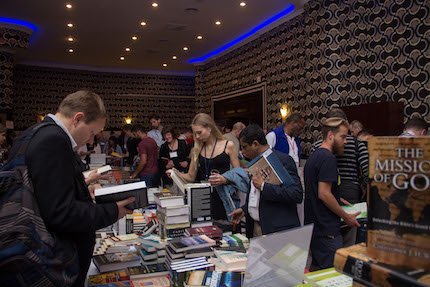
Brown focused on three key areas: the theological and doctrinal affirmation of the Reformation in the Gospel; the social and cultural impact that the 16th century events had throughout the world and in the formation of democratic societies and the development of freedoms, and the importance of the Reformation in bringing the gospel to all nations.
We need to know where we're coming from, to know where we're going, Lindsay Brown said. Luther himself understood that he preached nothing new, but the doctrine of the Apostles.
We are not to innovate, but to renew our understanding and action based on these theological foundations: justification by grace alone through faith, Scripture as authority, and universal priesthood, the former director of the Lausanne Movement explained.
Brown reviewed the cultural, social, educational, economic, and political impact of the Reformation, focusing on the teaching that Christ is the Lord of any sphere of the universe.
He emphasised the mission of Christians of bringing the gospel to the world, quoting Jean Calvin's comments and rejecting the claim that the Reformers were not interested in mission.
Brown said that if the Church is not bringing the gospel to everyone, it is because Christians are not really believing it. Thus, the church today has to reaffirm itself as the heir of the Reformation in maintaining a solid biblical foundation and commitment to the gospel, abolishing the separation between sacred and secular by connecting with culture and society, and carrying the gospel to the ends of the Earth.
The 2017 European Leadership Forum concluded with this challenge: being a European meeting that continues to help national ministries to make greater connections, aiming to re-evangelise Europe and renew the biblical church.
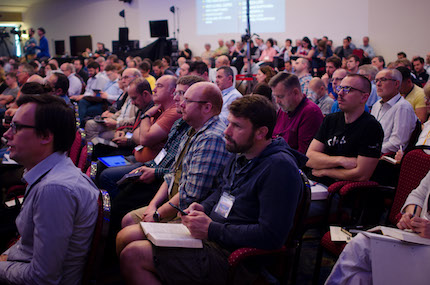
MORE INFORMATION
Many of the plenaries, workshops and other resources of previous ELF conferences are available for free at the Forum of Christian Leaders's website.
You can follow the #2017ELF hashtag on Twitter.
Read the summary of the 2016 ELF conference and the 2015 ELF conference.
Read and listen to an interview about the vision of ELF with its director Greg Pritchard.
Watch a photo gallery of this year's ELF conference:
Published in: Evangelical Focus - europe - ELF 2017: ‘Knowing where we come from, we will know where we go’
